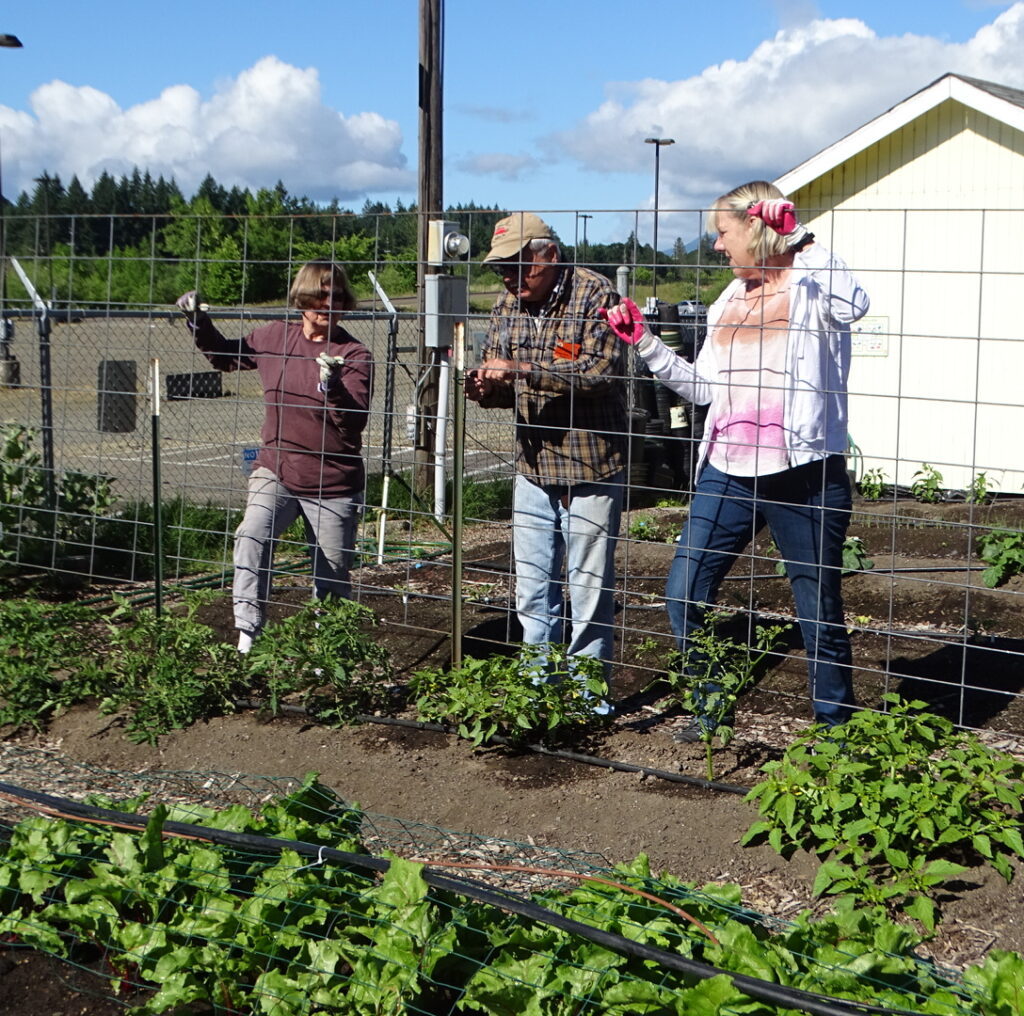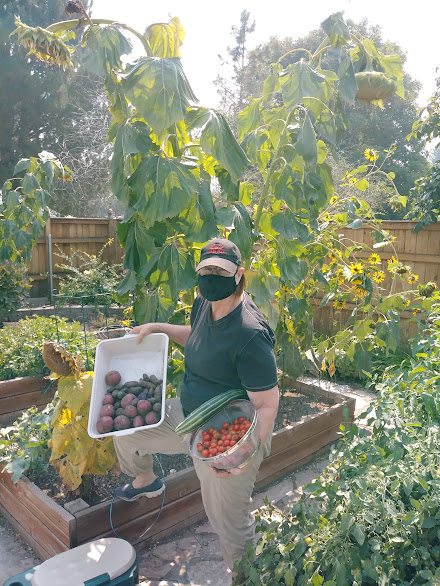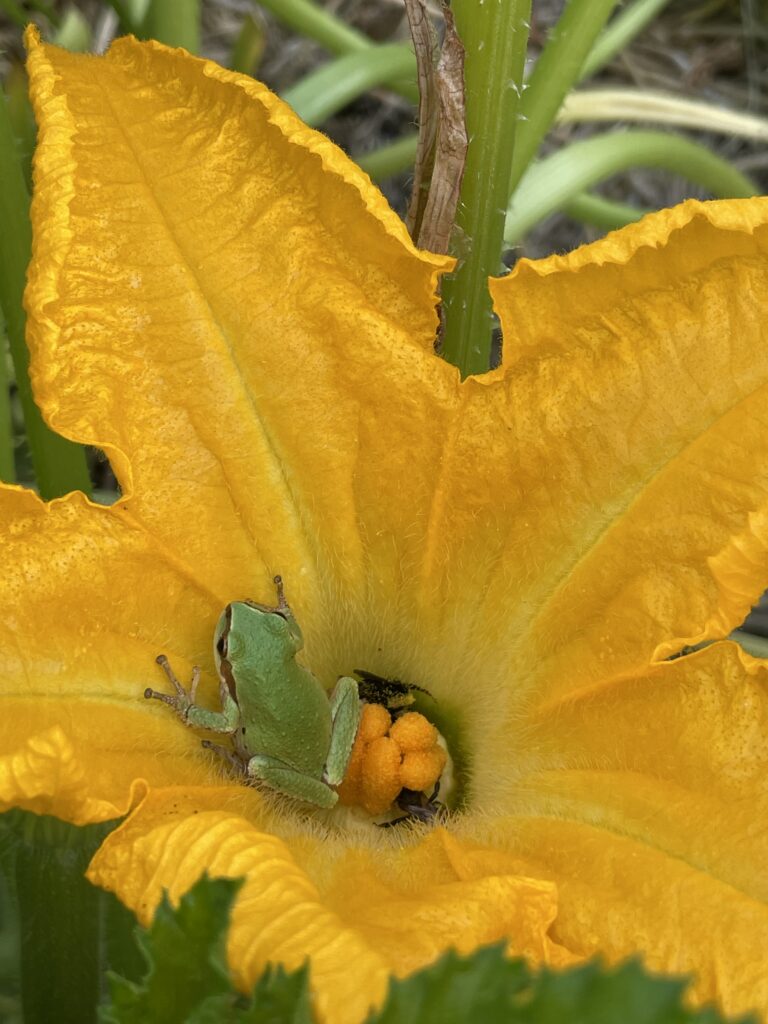Applications for the second cohort of Master Gardener JEDI Task Force Members are now being accepted. Click here to submit your application. Applications will be accepted through February 28, 2022. We are specifically seeking applications from Master Gardener volunteers, across the state of Oregon, who are
- committed to advancing Justice, Equity, Diversity, and Inclusivity with in the Master Gardener program.
- wanting to deepen their own understanding of inequities, historical racism, and colonialism within horticulture, Land Grant Institutions, and Oregon.
- able to make a 12 month commitment (April 2022 – March 2023), of 4-6 hours per month, for Task Force work.
- willing to be a bridge between the Task Force, and their local Master Gardener group, to ensure that the work that we do on the Task Force is brought back to county Master Gardener Programs.
JEDI stands for Justice, Equity, Diversity, and Inclusivity. Sometimes, we call ourselves the DEI Task Force. Sometimes, we call ourselves the JEDI Task Force, because frankly, the word ‘JEDI’ is both more representative of what we are trying to do, and is also more fun to say.
You can learn a bit more about the aims and structure of the JEDI Task Force, by visiting this post, from May 2021. Service on the Task Force can be counted towards your volunteer service requirement or recertification requirement.
Quotes from JEDI Task Force Members, Cohort 1
“The DEI cohort work connected me with other Master Gardeners in Oregon and our home OSU organization like nothing I have ever done before, and it opened my eyes and my mind to the reckoning work that needs to be included in my everyday life.” [N., Master Gardener Volunteer]
“As a retired HR professional, who has had a fair amount of DEI training and experience, I thought I had a pretty good grasp. The work of the task force is important to me, but I assumed that any training involved would be mainly repetitive. However, the breadth of this work and training has expanded my horizons, particularly with respect to learning about indigenous peoples. Any former training I had focused mainly on race, with sexual orientation lightly covered.
I’m already using my heightened learning in a graduate-level HR course I teach for school administrators and in my personal interactions. Yesterday, I was caught making an assumption about the gender of a person’s spouse – which was an embarrassing moment. But even apologizing for my error was easier because we’d recently discussed it in the group.
My main reason for joining the task force is to support cultural growth within the Master Gardener program. During my six years as an MG, it’s felt too much like an insular, old, white garden club. It’s time for change. “Gentle pressure, relentlessly applied.” *
*Not my quote, but I’ve never been able to find the verified author. It’s a super mantra when you’re trying to effect change.” [D., Master Gardener Volunteer]
“I went into this cohort with open eyes and heart, hoping to learn some ways to help those with a somewhat exterior of close mindedness to find paths to understanding. I was rewarded with a whole toolbox of great ideas and thoughts, words of wisdom from some incredible tribal elders and POC gardeners from other parts of the country. New resources and great interchanges with other gardeners addressing the issues that we find ourselves in daily. Some of the speakers were challenging, some made us uncomfortable, but all helped us to see, and perhaps walk in the other person’s shoes. My take away was a better understanding and greater sense of empathy to the plight of those that have for so long been underserved and mistreated. I think we all came away with a gift of knowledge and appreciation of our brothers and sisters.” [T., Master Gardener Volunteer]
“The DEI Task Force is what’s needed to help the Master Gardener program reach its full potential of public service. The meetings are a friendly arena to dive into learning about equity and understanding racism if you’ve been curious. If you’re experienced with anti-racist ideas and action the Task Force is a medium for connecting with very place-specific and deep cultural material grounded in how all Oregonians relate to land.
I feel good that I’m helping to craft the traditions of Extension service into a more whole framework for the future. It is exciting to be a part of a group that is transforming itself within a racial justice lens.” [E., Master Gardener Volunteer]
JEDI Task Force Outcomes, from Cohort 1 (April 2021 – March 2022)
- We adopted a statement equity requirement for Master Gardener training and recertification, beginning in 2022. Culture of Gardening Story Telling Initiative
- We began building a toolkit that coordinators can use to diversify speakers and curricular content in the Extension Master Gardener Program.
- In late 2021, we surveyed Master Gardener coordinators and volunteers, to better understand who we currently serve and reach through the Master Gardener program. In order to provide tools and resources to coordinators and associations to do DEI work in their county, it is important that we understand the work that is currently being done, partners we work with, and capturing successes and challenges. The results of the survey will help us to get have baseline data of what we are doing, today, and to determine what types of training or resources are needed to advance our DEI goals.
The 32 DEI Task Force Members and ~10 OSU Extension Home Horticulture working group members participated in a total of 12 hours of engagement across 5 learning opportunities, organized as part of our overall commitment to DEI within the Extension Master Gardener Program.
- OSU Diversity Strategic Plan (with Allison Davis White-Eyes, formerly of OSU’s Office of Institutional Diversity)
- Ecological Framework for DEI and Racial Literacy (with Jeff Kenney of OSU’s Office of Institutional Diversity)
- Bias Intervention (with Jeff Kenney)
- Pronoun Use (with LeAnn Locher of the Extension Master Gardener Program)
- 4-week long Indigenous Cultures Field School Training (with Courtney Yilk, Wilson Wewa, Wenix Red Elk, Samantha Chisholm Hatfield, Louise Wilmes, and Heather Gurko, organized by Confluence)
We hosted two special events, open to the general public, in support of our efforts to grow the breadth of our events to include cultural practices and inclusion.
- “The Work is in Our Hands” lecture, about the history and accomplishments of black horticulturists and garden clubs in the United States (with Abra Lee, who is writing a book on the subject, entitled ‘Conquer the Soil’). A total of 340 people attended the live presentation, via Zoom. Another 130 have viewed the recording, for a total reach of 470 people.
- A screening of the movie ‘Gather’, with a facilitated discussion with Drs. David Phillips and Samantha Chisholm Hatfield of OSU, following the movie. Over 2,000 people registered for this event on the movie screening platform, Kinema. More than 1,000 people attended the movie screening and discussion, and 63 people have accessed the recording of the discussion.
We launched a story telling initiative, ‘The Culture of Gardening’ as a way to amplify and center the voice of gardeners growing plants to connect with their heritage, culture, and identity.
- In 2020, we featured 7 stories of gardeners from diverse backgrounds, including recipes.
We hope that you’ll consider joining us. Remember, applications are due February 28, 2022. Click here to submit your application.
















